The Best In-Game Card Games of All Time
Nothing here!
9 Games
Triple Triad was conceived by battle system designer Hiroyuki Ito. In the game two players face off against one another, one side playing as "blue", the other as "red" on a 3x3 grid. Each player has five cards in a hand and the aim is to capture the opponent's cards by turning them into the player's own color of red or blue.
Caravan is a card game played by caravan guards and travelers in the Mojave Wasteland.
Caravan decks consist of at least 30 cards from one of more traditional playing card sets. The deck may have any number of cards of any type that suits a player's strategy, although it cannot have duplicate cards from the same set. For example a K♠ from set A and a K♠ from the set B deck is acceptable, but more than one K♠ from set A would be illegal.
Caravan is played with two players building three opposing piles (or "caravans") of numbered cards. The goal is to outbid your opponent's caravan with the highest value of numbered cards without being too light (under 21) or overburdened (over 26).
The game begins with each player taking eight cards from their deck and placing either one numerical card or ace on each caravan. Players may not discard during this initial round.
Once both players have started their three caravans, each player may do one of the following on their turn: 1. Play one card and draw a new card from his or her deck to their hand: 2. Discard one card from their hand and draw a new card from his or her deck: or 3. Discard one of their caravans by removing all cards from that pile.
Caravans have a direction, either ascending or descending numerically, and a suit. The suit is determined with the first card placed on a caravan, the direction by the second. All subsequent cards must continue the numerical direction or match the suit of the previous card. Cards of the same numerical value cannot be played in sequence, regardless of suit. Face cards can be attached to numeric cards in any caravan and will affect them in various ways.
Caravan decks consist of at least 30 cards from one of more traditional playing card sets. The deck may have any number of cards of any type that suits a player's strategy, although it cannot have duplicate cards from the same set. For example a K♠ from set A and a K♠ from the set B deck is acceptable, but more than one K♠ from set A would be illegal.
Caravan is played with two players building three opposing piles (or "caravans") of numbered cards. The goal is to outbid your opponent's caravan with the highest value of numbered cards without being too light (under 21) or overburdened (over 26).
The game begins with each player taking eight cards from their deck and placing either one numerical card or ace on each caravan. Players may not discard during this initial round.
Once both players have started their three caravans, each player may do one of the following on their turn: 1. Play one card and draw a new card from his or her deck to their hand: 2. Discard one card from their hand and draw a new card from his or her deck: or 3. Discard one of their caravans by removing all cards from that pile.
Caravans have a direction, either ascending or descending numerically, and a suit. The suit is determined with the first card placed on a caravan, the direction by the second. All subsequent cards must continue the numerical direction or match the suit of the previous card. Cards of the same numerical value cannot be played in sequence, regardless of suit. Face cards can be attached to numeric cards in any caravan and will affect them in various ways.
Gwent (Polish: Gwint) is a fast-paced card game that can be played within The Witcher 3: Wild Hunt on every platform. The game is about the clash of two armies locked in mortal struggle on a battlefield where the players are the leaders and the cards are their forces. With four different factions offering unique combat styles and endless paths to victory, Gwent is every adventurer's first choice when it comes to one-on-one card-based dueling.
Pazaak is a minigame created for the 2003 roleplaying game Star Wars: Knights of the Old Republic and was also included in its 2004 sequel, Star Wars: Knights of the Old Republic II: The Sith Lords.
It is similar in principle to the real world game of Blackjack, where players attempt to get as close as possible to a score of 21 without going over. Blackjack is also frequently played in casinos.
It is similar in principle to the real world game of Blackjack, where players attempt to get as close as possible to a score of 21 without going over. Blackjack is also frequently played in casinos.
Voltorb Flip is a minigame of the Goldenrod and Celadon Game Corners in the Korean and Western releases of Pokémon HeartGold and SoulSilver. It replaces the traditional slot machines found in the Japanese versions and bears similarities to card flip, a Game Corner minigame exclusive to Pokémon Gold, Silver, and Crystal.
Among Japanese fans, it is known as ビリリダマめくり Biriridama Flip.
Among Japanese fans, it is known as ビリリダマめくり Biriridama Flip.
Poker is a type of card game traditionally associated with betting and gambling. It is available as a minigame in Red Dead Redemption and Red Dead Redemption 2.
Players can cheat while playing poker in Red Dead Redemption, if wearing the Elegant Suit. When dealing, the player must control an arrow with the analog stick in the middle of a small arc. If it strays too far from the center it begins to turn red, indicating that other players are beginning to notice the underhanded tactics. If it is completed successfully, a random card from the bottom of the deck is retrieved. Failure will result in a duel.
The player then holds this extra card (shown separately on the left side of the screen) in an unknown location on his suit, likely in the sleeve. At any time when the player is betting, he can attempt to exchange this card for one in his hand. This uses the same analog balance curve as the initial cheating draw, though it is slightly easier to stay in the middle than when dealing. The cheat card then goes into the hand and the card that was chosen to be replaced then goes into the reserve.
Only one card can be stored at any given time and the reserve card is randomly reset if the player chooses to cheat while dealing later in the game. This opens up possible strategies such as exchanging your reserve card for a card that you feel is superior from your hand, especially if you are planning to fold or your strategy did not play out in the flop.
Note: The higher the buy-in, the higher the probability to be detected by other players (i.e. it is easy to cheat at the MacFarlane's Ranch, but much harder at Blackwater). The more NPC players are in the game, the less likely they'll spot Marston cheating even if the player is a bit sloppy during the cheat centering.
Players can cheat while playing poker in Red Dead Redemption, if wearing the Elegant Suit. When dealing, the player must control an arrow with the analog stick in the middle of a small arc. If it strays too far from the center it begins to turn red, indicating that other players are beginning to notice the underhanded tactics. If it is completed successfully, a random card from the bottom of the deck is retrieved. Failure will result in a duel.
The player then holds this extra card (shown separately on the left side of the screen) in an unknown location on his suit, likely in the sleeve. At any time when the player is betting, he can attempt to exchange this card for one in his hand. This uses the same analog balance curve as the initial cheating draw, though it is slightly easier to stay in the middle than when dealing. The cheat card then goes into the hand and the card that was chosen to be replaced then goes into the reserve.
Only one card can be stored at any given time and the reserve card is randomly reset if the player chooses to cheat while dealing later in the game. This opens up possible strategies such as exchanging your reserve card for a card that you feel is superior from your hand, especially if you are planning to fold or your strategy did not play out in the flop.
Note: The higher the buy-in, the higher the probability to be detected by other players (i.e. it is easy to cheat at the MacFarlane's Ranch, but much harder at Blackwater). The more NPC players are in the game, the less likely they'll spot Marston cheating even if the player is a bit sloppy during the cheat centering.
Tableturf Battle is an in-universe collectible card game inspired by Turf War battles but turn-based and designed for two players. Both players use the cards in their customizable decks to add ink patterns to a grid-like board, competing to have the most ink on the board at the end of the game.
Tableturf Battle is popular in the Splatlands and can be played at any Tableturf Battle Dojo.
Tableturf Battle is popular in the Splatlands and can be played at any Tableturf Battle Dojo.
Joustus is a card game first introduced in the King of Cards campaign, where it also served as a mini-game. The game itself is played with cards representing enemies and characters encountered all across the Valley.
A Joustus Card is also one of the items of Showdown, and the cards also reappear in the Puzzler's Pack DLC, thanks to a Quandary challenge that unlocks for King Knight the ability to use them in combat.
The main objective of a game of Joustus is to claim more gems than the opponent, by finding ways to push their own cards to gems. To start the game, one has to pick a card from their deck. Each card has one or more arrows pointing in a certain direction; the arrows indicate where one can push another card towards.
The game has three end conditions:
1. When no more valid moves can be made.
2. When all of the open squares are full.
3. When a player has no cards left at the start of the turn; should this happen, the other player automatically wins regardless of the status of the gems (although a Gem Sweep, a victory with all gems claimed by a single player, can still occur).
A Joustus Card is also one of the items of Showdown, and the cards also reappear in the Puzzler's Pack DLC, thanks to a Quandary challenge that unlocks for King Knight the ability to use them in combat.
The main objective of a game of Joustus is to claim more gems than the opponent, by finding ways to push their own cards to gems. To start the game, one has to pick a card from their deck. Each card has one or more arrows pointing in a certain direction; the arrows indicate where one can push another card towards.
The game has three end conditions:
1. When no more valid moves can be made.
2. When all of the open squares are full.
3. When a player has no cards left at the start of the turn; should this happen, the other player automatically wins regardless of the status of the gems (although a Gem Sweep, a victory with all gems claimed by a single player, can still occur).
21 is a minigame for Resident Evil 7: Biohazard. Unlike the rest of the game, 21 is a turn-based card game. There is no moving, shooting, guarding, crouching, etc.; instead, the player selects cards and executes commands for Clancy Jarvis. The player does not have a time-limit to their turn; before making decisions on their move, they can move the camera around and check the files menu.
The game plays similar to blackjack: Clancy and Hoffman take turns choosing to either "hit" (draw another card) or "stay" (retain their current cards and pass their turn to the opponent). They both have a face-down card, which only they can see the value of, but all other cards are face-up and can be seen by the other character. When both players "stay" in succession, the face-down cards are revealed. The winner is whoever has the cards with a total value closest to 21 without going over (however, if both players do go over 21, the player with the lower "bust" score wins). The loser of each round either has their fingers chopped off or receives an electric shock, depending on the game mode; the game is decided by the first to lose all the fingers on their hand or receive an electric shock after the current reaches Level 10.
Unlike normal blackjack, the cards are numbered 1 through 11, with no doubles within the deck, and both players share the same deck. There are also Trump Cards, which apply special effects to the table; drawing certain cards, increasing the opponent's bet, changing the target value, and more. Clancy and Hoffman will both receive a Trump Card at the beginning of a new round or randomly upon drawing a card.
The game plays similar to blackjack: Clancy and Hoffman take turns choosing to either "hit" (draw another card) or "stay" (retain their current cards and pass their turn to the opponent). They both have a face-down card, which only they can see the value of, but all other cards are face-up and can be seen by the other character. When both players "stay" in succession, the face-down cards are revealed. The winner is whoever has the cards with a total value closest to 21 without going over (however, if both players do go over 21, the player with the lower "bust" score wins). The loser of each round either has their fingers chopped off or receives an electric shock, depending on the game mode; the game is decided by the first to lose all the fingers on their hand or receive an electric shock after the current reaches Level 10.
Unlike normal blackjack, the cards are numbered 1 through 11, with no doubles within the deck, and both players share the same deck. There are also Trump Cards, which apply special effects to the table; drawing certain cards, increasing the opponent's bet, changing the target value, and more. Clancy and Hoffman will both receive a Trump Card at the beginning of a new round or randomly upon drawing a card.
8 Comments
triple triad is so good i got the app on my phone just to play it more.
This comment was deleted
I know its relatively new but Queen’s Blood in FFVII Rebirth is some high quality shit
Persona 5 Royal's Tycoon deserves a spot
make the case in the comments below
Joustus was the reason I never finished king of cards lmao
Ok I'll admit I've played a stupid amount of both Gwent and Pazaak. But IMO Triple Triad takes it eeeeasily. I love that it's so simple to pick up and play, but still has enough depth and complexity to hold my interest long after I gave up caring about mister pouty pants. I also think it's great how you can grind the crap out of it to make yourself exactly as strong as you feel like being. And it keeps being relevant throughout the game as you come to new regions and find new rulesets and that whole weird metagame. I feel like it's the engine of the second and third and fourth playthrough since it keeps being fun the whole time.
Everybody loves Triple Triad.
Everybody loves Triple Triad.


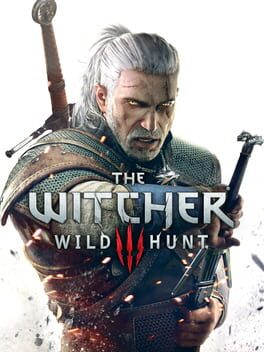
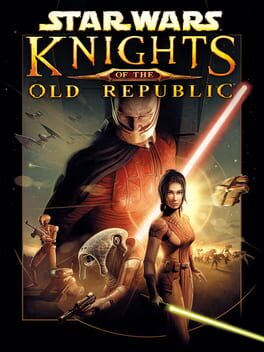
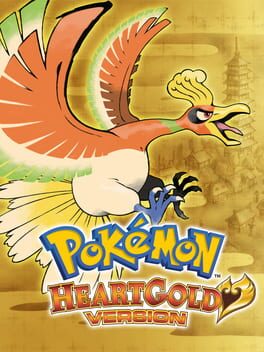
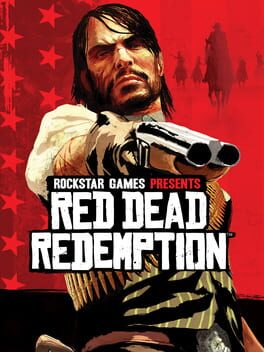
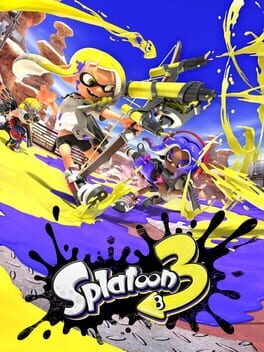
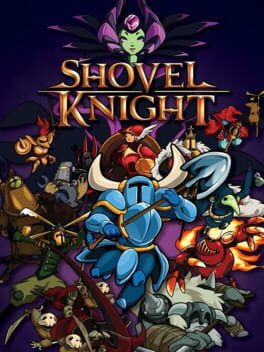

Psientologist
1 month ago
Also no love for Mesuking in Yakuza?